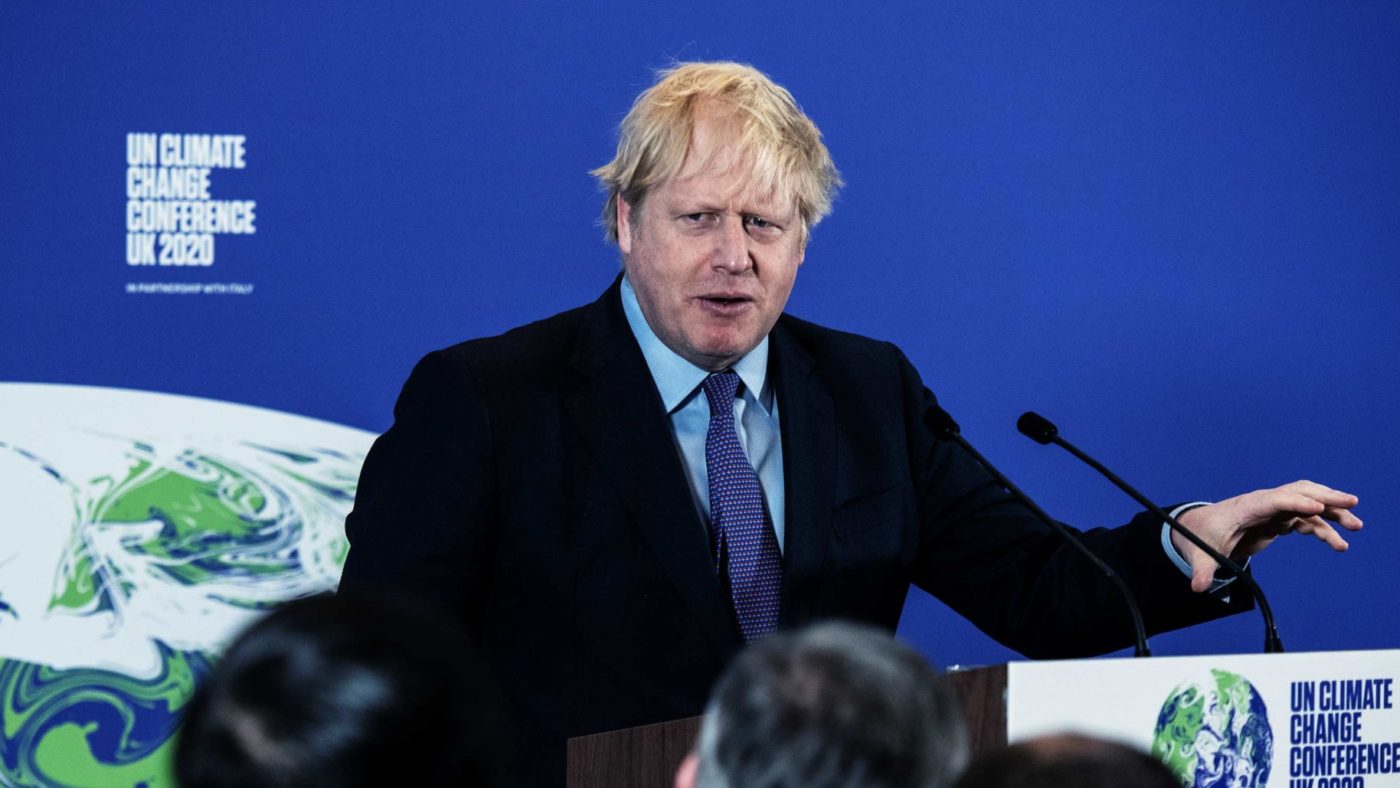While most of us have been fixated on the arrival of a vaccine, Boris Johnson has announced what he hopes will be a shot in the arm of a rather different kind.
To relatively little fanfare, the Prime Minister has once more ramped up his already ambitious target for decarbonising the British economy. We will, he declared, reduce greenhouse gas emissions by at least 68% compared to 1990 levels – and all by the end of this decade.
Hot on the heels of his recent Ten Point Plan for the environment, it shows once more Johnson’s determination to make greenery a central plank of his term in office. But while most of us probably have an idea about the Net Zero target, electric cars and so on, I’m not sure an understandably Covid-obsessed public have really taken stock of just how radical these plans are, or the costs they may entail.
Indeed, as this week’s quietly withering National Audit Office report on the 2050 net zero target notes, this is a “colossal challenge”, the costs and benefits of which remain hugely unclear. It’s not just about getting the various arms of government working in sync, but convincing the public too. And, as the NAO also notes with dramatic understatement, “government often overestimates consumer buy-in to its policies aimed at reducing emissions”.
They had better start working on that buy-in, because this is a government that plans to change the way we heat, eat, travel and all manner of things besides in a very short space of time. Remember that in just nine years’ time in the UK it will be the end of the line for the fossil fuel car, that mainstay of Western consumer capitalism for the best part of a century.
As that policy makes clear, the emphasis at the moment is firmly on central diktat, leveraging the power of Whitehall to steer the economy in a certain direction through subsidies, bans, and public investment in particular technologies.
To help that effort we have a smorgasbord of active-sounding committees: there’s a Climate Action Strategy Committee, a Climate Action Implementation Committee and a Climate Change National Strategy Implementation Group. Then there are the various departmental committees, the Net Zero Steering Group and the independent Climate Change Committee, created as part of the 2008 Climate Change Act. If you’re failing to keep up at this point, you’re probably not alone.
As well as the profusion of different bodies trying to steer things, there’s also a sense that the PM is trying to come up with as many measures as possible to demonstrate just how seriously he’s taking this issue.
Take the Ten Point Plan, which has a strangely sporadic quality to it. Massive measures, such as “accelerating the take-up of electric vehicles” sit alongside pretty modest ones such as encouraging cycling and investing more in hydrogen. There’s little sense of the relative scale of the different changes, the costs to consumers or where the Government should be putting its limited resources. To govern is to choose, after all, and you can’t prioritise everything.
Nor have we heard enough from ministers about nuclear power, by far our best low-carbon energy source. There’s a great deal of buzz about the plummeting cost of wind and solar, both of whose intermittency problem is nowhere near solved, and very little about the fact we’re decommissioning big nuclear plants without a clear plan to replace them, let alone expand the sector.
Likewise, given that much of our progress on reducing emissions has been spurred by the carbon price floor, you might expect to hear more about a border-adjusted carbon tax – a simpler measure that would incentivise businesses to cut their own emissions. Instead the Government has a consultation on designing such a levy, which hardly makes it sound like an item of huge urgency.
There’s an obvious political question here too. Why is the Prime Minister taking up the green cause with such zeal?
Part of the answer is about trying to send a message about what kind of country Britain will be after Brexit. Nimble, trend-setting, leading the world towards a tech-tastic future and levelling our standards up, rather than down. The same message, incidentally, that was sent by the MHRA being the first regulator to approve a Covid vaccine this week.
There’s also a straightforwardly personal explanation: like any PM, he wants to leave a bit of a legacy, to be able to say that his was the government that put us on the path to becoming a cleaner, greener Britain. You can’t fault his ambition, but he’ll have a far better chance of realising it if he stops trying to direct everything from the centre.
Click here to subscribe to our daily briefing – the best pieces from CapX and across the web.
CapX depends on the generosity of its readers. If you value what we do, please consider making a donation.


